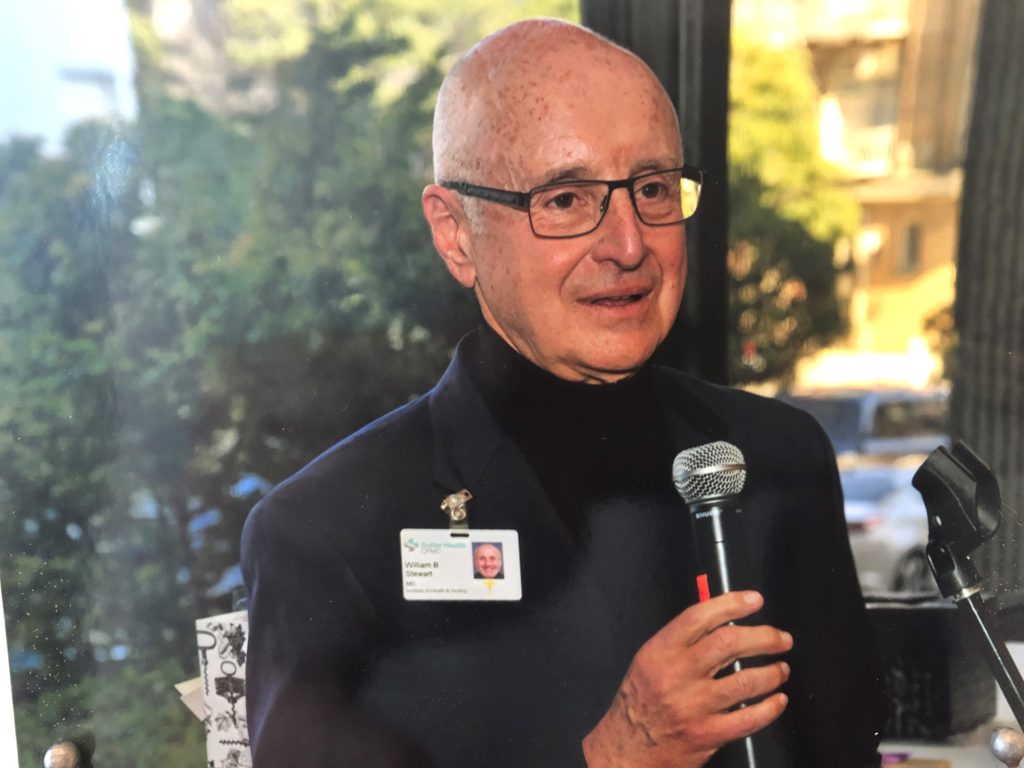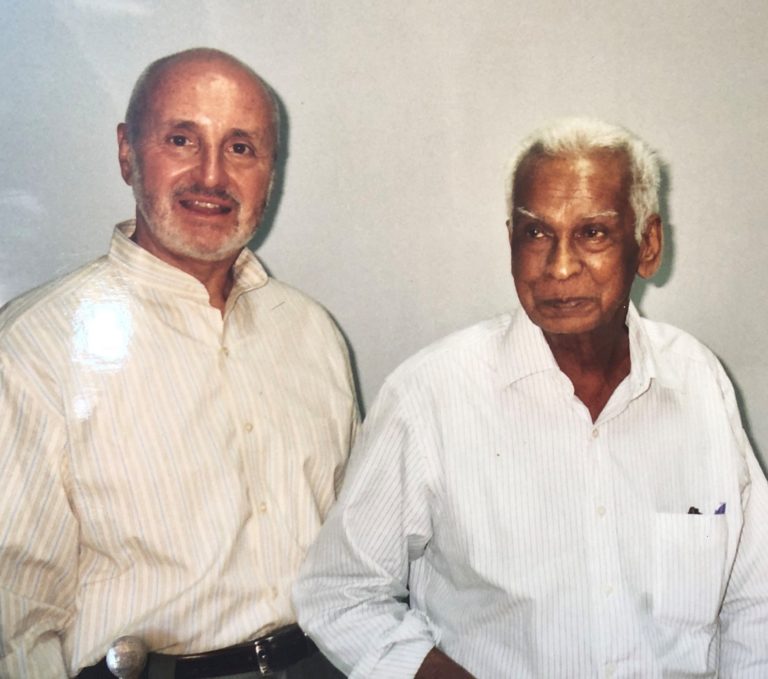William Stewart, MD
Beyond medicine - his enduring healing mission

Bill Stewart’s medical journey has taken several profound turns, each revealing a facet of his extraordinary career as a physician. His father had been an anesthesiologist and he had considered several surgical specialties before choosing ophthalmology. At CPMC he was known as a gifted surgeon who created the department’s first curriculum for ocular plastic surgery where he was respected as a frequently published clinician, teacher and leader who served as Chair of the Department from 1996 to 2000. Stewart taught his residents, as he had been taught by Stanford heart transplant pioneer, Dr. Norman Shumway, that his profession was both a vocation and an avocation and a true passion in his life.
Another aspect of Stewart’s career began in 1983 when he first traveled to India to visit the Aravind Eye Hospital in Madurai with his friend, David Vastine who introduced him to Dr. Govindappa Venkataswamy, known as “Dr. V”. Starting with 2 operating rooms in his 11-bed hospital, Dr. V’s Aravind is now the largest eye care system in the world. According to Stewart, “From the time of that visit forward, my life as both a surgeon and a human being was permanently transformed,” explaining further, “it was there that I saw in practice that health and healing are not just scientific but also spiritual pursuits, where both visible (external) and invisible (inner) worlds play an active collaborative role.”

In 1989, inspired to share Dr. V’s values of service and action with his colleagues, Stewart launched the Program in Medicine and Philosophy at CPMC in San Francisco, with the aim of educating the community about Aravind’s practices bridging science and spirit. Via lectures, seminars and retreats, his goal was to guide people toward an understanding of a broader meaning of health while illuminating a deeper understanding of healing. “As ophthalmologists we fight blindness,” he explains “but blindness also refers to a lack of humanity and calling to serve our fellow human beings. Dr. V was all about ‘doing the work of healing’ and those were the values I wanted to share.”
In 1990 Bruce Spivey, then President of Pacific Presbyterian Medical Center, now known as CPMC. provided critical help by calling community leaders together to “explore and integrate human health in the context of environmental health… (and other) issues of broad scope and significance including philosophical, scientific and moral traditions (that) are extremely pertinent and timely.” Stewart credits Spivey’s introduction of the then novel idea of holistic healing practice to the medical center’s leaders. Drs. George Lee, Martin Brotman, and Warren Browner, along with Jerry Mapp, Betty Peters, and Bob Tomasello of CPMC’s philanthropic foundation provided support along with many others in the community. “The Institute for Health and Healing would likely not have survived without these leaders and our generous community,” according to Stewart.
Ultimately, CPMC, via the President’s Discretionary Fund and the CPMC Foundation, provided seed funding to expand Stewart’s mission. The program was renamed as The Institute for Health and Healing in 1994 and foundational gifts were also received from the Fetzer Institute and Mrs. Roberta Neustadter allowing the program to expand its scope and reach. Today, IHH is known as an extraordinarily successful integrative medicine program comprising five integrative medicine clinics across Northern California, multiple stores, community outreach programs and lectures, and employee wellness offerings. Other than the Functional Medicine program at the Cleveland Clinic, the Institute of Health and Healing is the largest Integrative Medicine program within a large health care organization nationally.
It is important to note that at the same time as Stewart was engaged in nurturing the nascent IHH, he was also continuing his work as an oculoplastic surgeon, both in San Francisco and as a teacher during his frequent visits to the Aravind Eye Care System in India. There, Dr. Usha Kim, one of his former fellows, established the Department of Orbit, Oculoplasty, Ocular Oncology and Ocular Prosthetics where she is responsible for training many residents and fellows now serving in India and elsewhere across the world.
As a passionate proponent of “deep medicine”, the title of his 2009 book, Stewart wrote, “My years as a surgeon have taught me that we cannot deal with illness without dealing with the spiritual aspects of illness any more than we can deal with illness without dealing with its genetic implications. The work of deep medicine seeks to go beyond medicine to combine healthcare practices from the best of contemporary, bio-technical medicine with more spiritual and inner aspects of healing – such as caring, compassion, and purpose as well as the management of contributors to disease such as stress, emotions and the challenge of change.”
In Stewart’s words, “Everything you think, feel, say and do is either health creating or health negating. Everything!” He believes in the healing potential of deep listening, introspection, respect, and compassion saying, “Our patients and everyone who works in our facilities and with our programs aspire to embody the IHH motto that ‘every encounter is a healing encounter.’”
Stewart views the relationship of CPMC’s Department of Ophthalmology, the Pacific Vision Foundation and Aravind’s guiding principles as a triangular heritage, each committed to fighting needless blindness, from cataracts to intolerance and poverty to macular degeneration.
